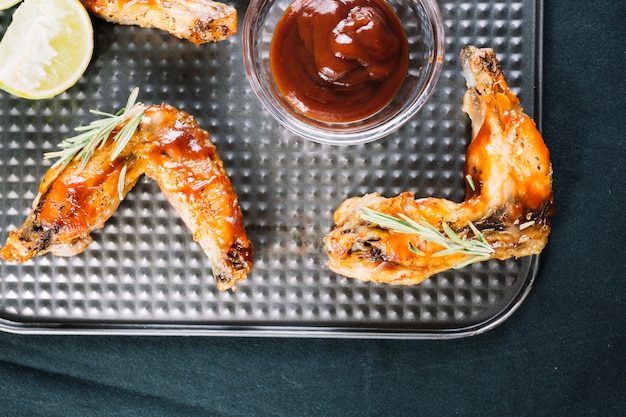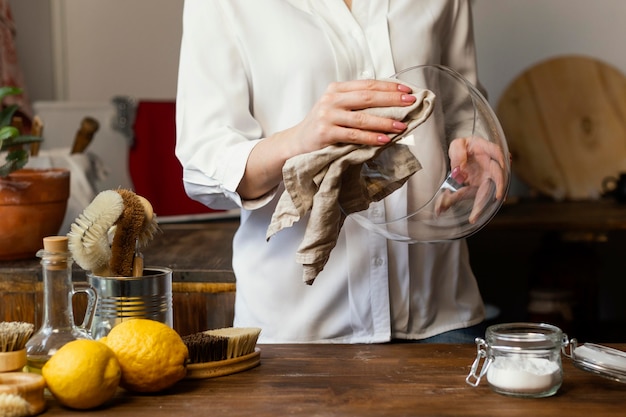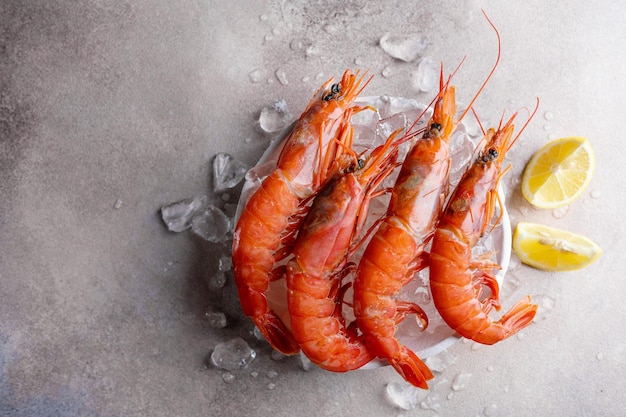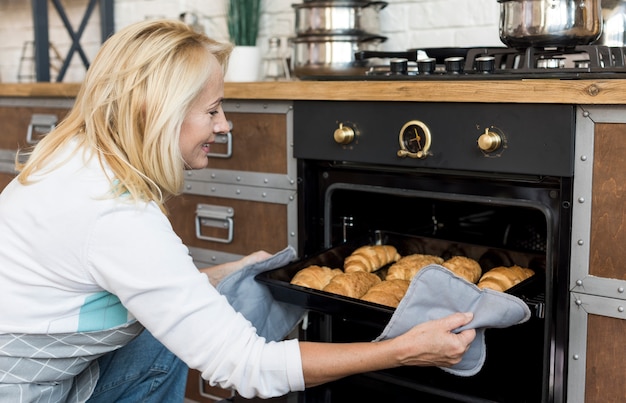(Part 1) Picking the perfect lobster Tails

Before you even start thinking about cooking, you need to get your hands on some quality lobster tails. It's like building a house - if you start with shaky foundations, the whole thing might crumble. So, let's talk about how to pick the best lobsters for your culinary masterpiece.
The Freshness Factor
Freshness is key. There's a world of difference between a lobster tail that's just been caught and one that's been sitting around for a while. The first thing you want to do is look at the colour. A truly fresh lobster tail will have a vibrant, deep red shell. If it looks dull, faded, or even slightly greyish, it might not be as fresh as you'd like.
Next, give it a gentle squeeze. A fresh lobster tail will feel firm and springy. If it's soft and squishy, it's a sign that it's not as fresh as it could be. You want your lobster to be firm and lively, not limp and lifeless!
Size Matters (But Not Always!)
Choosing the right size depends on your needs and preferences. For a casual dinner, a 6-8 ounce lobster tail is usually just right. It’s perfect for one person and a nice, manageable portion. If you're planning a feast, you might want to go bigger, opting for tails that are 10 ounces or more.
However, remember, bigger doesn’t always mean better. Smaller tails can sometimes be more flavorful because they tend to be more delicate.
Frozen vs. Fresh
For me, there's something special about fresh lobster tails. The vibrant color, the firm texture, the unmistakable aroma - it's a sensory experience. But frozen lobster tails are a perfectly acceptable alternative, especially when fresh ones are unavailable or when convenience is paramount.
If you opt for frozen lobster tails, make sure you defrost them properly. The best way is to do it slowly in the refrigerator overnight. This allows the lobster tails to thaw evenly and prevents the meat from becoming watery. You can also thaw them in a bowl of cold water, but change the water every 30 minutes to keep it cold.
(Part 2) Prepping Your Lobster Tails

You've got your lobster tails, now it's time to get them ready for cooking. Think of this as the "getting dressed for a party" stage, where you make sure everything looks its best.
Rinse and Dry
First things first, rinse your lobster tails thoroughly under cold running water. This will wash away any grit or debris that may have stuck to the shells. Then, pat them dry with some kitchen paper. A dry surface is crucial for achieving a nice crisp shell, especially if you're grilling or broiling.
Splitting the Tails
Now comes the decision: cook them whole or split them open? I personally find that splitting them open allows for more even cooking and makes it easier to remove the meat later.
To split a lobster tail, you'll need a sharp knife. Carefully cut down the centre of the tail, separating the top and bottom shells. You’ll want to make a clean, even cut to avoid any jagged edges. Be gentle with the knife to avoid accidentally cutting into the delicate meat.
The Intestinal Tract
If you're feeling adventurous (and a little bit squeamish), you can remove the intestinal tract, which is that dark line running along the inside of the tail. It's often referred to as the "vein". You can gently pull it out with your fingers or a small knife. It's a bit messy, but some people find it improves the taste and presentation.
(Part 3) Steaming to Perfection

Steaming is one of my go-to methods for cooking lobster tails. It's incredibly gentle, preserving the delicate flavour and yielding tender, juicy meat. Think of it as a spa treatment for your lobster tails. Here's how you do it:
The Steaming Set Up
Start by filling a large pot with about an inch of water. Add a few tablespoons of salt to the water - it's not just for flavour; salt helps enhance the natural sweetness of the lobster. Bring the water to a rolling boil. Next, you'll need a steamer basket or a trivet. If you're using a steamer basket, make sure it sits above the water, not submerged. The lobster tails need to steam, not boil!
cooking time
Carefully place your lobster tails in the steamer basket, ensuring they're not touching each other. This prevents them from steaming unevenly. Cover the pot with a lid and bring the water back to a boil. Once it’s boiling again, you’re ready to cook.
For 6-8 ounce lobster tails, steam them for about 8-10 minutes, or until the meat is cooked through and opaque. Larger tails might need a few extra minutes.
The "Done" Test
To check if your lobster tails are cooked, insert a sharp knife into the thickest part of the meat. If it comes out easily and the meat is white, it's done. The shell should also be bright red and firm.
Adding Extra Flavour
Want to take your steamed lobster tails to the next level? Add a touch of aromatic magic to your steaming water. I love to toss in a few bay leaves, black peppercorns, and a sprig of thyme. It infuses the lobster with a subtle, earthy flavour, a beautiful complement to the natural sweetness. Experiment with different herbs and spices to find your own favourite combinations.
(Part 4) Grilling for that Smoky Goodness
Grilling is the perfect way to add a smoky, chargrilled flavour to your lobster tails. It's a bit more hands-on than steaming, but the result is well worth the effort.
Prepping for the Grill
Start by preheating your grill to medium-high heat. If you're using a gas grill, ensure the burners are evenly lit. If you're using a charcoal grill, make sure the coals are hot and ashen.
Lobster Prep
You can grill your lobster tails whole or split them open. If you're splitting them, remove the intestinal tract as described earlier.
Grilling Time
Now, get your hands dirty. Brush the lobster tails with melted butter. This helps keep the meat moist and adds a rich, buttery flavour. Season them generously with salt and pepper.
Place the lobster tails on the preheated grill and cook for 3-5 minutes per side, or until the meat is cooked through and opaque. You’ll want to cook them over direct heat for that lovely char.
The Grill Marks
Once the lobster tails are cooked, it's time to create those beautiful grill marks. Carefully turn them 90 degrees and cook for another minute or two. This adds visual appeal and a more intense smoky flavour.
Flavour Boosters
If you want to take things up a notch, try basting the lobster tails with a marinade or sauce during the grilling process. A simple lemon-herb marinade or a garlicky butter sauce can really elevate the flavour profile.
(Part 5) Baking to Perfection
Baking is a fantastic option if you prefer a hands-off approach. It delivers consistently tender, juicy meat, perfect for a relaxed dinner or a larger gathering.
Oven Prep
Preheat your oven to 400 degrees Fahrenheit (200 degrees Celsius). You can bake your lobster tails on a baking sheet or in a baking dish. If you’re using a baking sheet, line it with parchment paper to prevent sticking.
Lobster Prep
You can bake your lobster tails whole or split them open. If you’re splitting them, remove the intestinal tract as described earlier.
Baking Time
Brush your lobster tails with melted butter and season them generously with salt and pepper. Place them on the baking sheet or in the baking dish and bake for 10-12 minutes, or until the meat is cooked through and opaque.
Adding Extra Flavour
Baking your lobster tails with other ingredients can add incredible depth of flavor. Try adding garlic cloves, sliced onions, or chopped herbs to the baking sheet. These ingredients will release their aromas while baking, creating a delicious, aromatic environment for your lobster tails.
(Part 6) Broiling for that Crispy Shell
Broiling is the way to go if you crave that crispy shell. It’s a quick and easy method, perfect for a last-minute meal or when you want to impress your guests with a touch of culinary flair.
Broiler Prep
Preheat your broiler to high heat. Make sure the rack is about 4 inches from the heat source. This ensures even browning and prevents the lobster tails from burning. Line a baking sheet with parchment paper.
Lobster Prep
You can either cook your lobster tails whole or split them open. If you’re splitting them, remove the intestinal tract as described earlier.
Broiling Time
Brush your lobster tails with melted butter and season them generously with salt and pepper. Place them on the baking sheet and broil for 3-5 minutes, or until the meat is cooked through and the shell is slightly browned.
Broiling Watchfulness
Keep a close eye on your lobster tails while they’re broiling, as they can burn easily. If the shell starts to get too dark, move the baking sheet down a rack or turn off the broiler.
(Part 7) Serving Your Lobster Tails
Your lobster tails are cooked to perfection – congratulations! Now it's time to serve them up and enjoy the fruits of your labor.
Hot or Cold?
Lobster tails are delicious served both hot and cold. Hot lobster tails are perfect for a hearty, comforting meal. Cold lobster tails are a refreshing and elegant option, often enjoyed as part of a seafood platter or salad.
side dish Inspiration
The possibilities for side dishes are endless. Here are a few of my personal favorites:
- grilled corn on the Cob: Sweet and smoky, a perfect complement to the delicate flavour of lobster.
- steamed asparagus: Light and refreshing, providing a nice contrast in texture and flavour.
- Creamy Risotto: Rich and comforting, a luxurious accompaniment to lobster tails.
- Caesar Salad: A classic pairing with a tangy, salty dressing.
- Roasted Vegetables: A colorful and healthy option, adding a burst of flavour and texture.
Sauce Options
A simple drizzle of melted butter can do wonders for a lobster tail, but why stop there? A tangy lemon sauce, a spicy chili sauce, or a creamy garlic sauce can elevate your dish to new heights. Experiment with different sauces to find your perfect match.
(Part 8) FAQs
1. What if my lobster tails are still frozen?
Don't worry, it happens! If your lobster tails are frozen, you'll need to defrost them before cooking. The best way to do this is to defrost them in the refrigerator overnight. This slow, gentle thawing method helps maintain the quality of the meat. You can also thaw them in a bowl of cold water, but make sure to change the water every 30 minutes to keep it cold.
2. How do I know if my lobster tails are cooked?
Checking for doneness is crucial to ensure your lobster tails are cooked to perfection. Simply insert a sharp knife into the thickest part of the meat. If it comes out easily and the meat is white, it's done. You can also check the shell – it should be bright red and firm to the touch.
3. How do I store leftover lobster tails?
Leftover lobster tails can be stored in the refrigerator for up to 3 days. Place them in an airtight container and store them in the coldest part of the refrigerator. You can reheat them in the oven, microwave, or on the stovetop.
4. Can I freeze cooked lobster tails?
Yes, you can freeze cooked lobster tails. To freeze them, let them cool completely, then place them in an airtight container or freezer bag. You can freeze them for up to 3 months. To thaw them, simply place them in the refrigerator overnight.
5. What are some tips for removing lobster meat from the shell?
Removing lobster meat from the shell is a bit like a mini-surgery. You'll want to use a sharp knife to crack open the shell. Then, carefully pry the meat away from the shell with a fork or a small knife. You can also use your fingers, but be cautious not to break the meat.
(Part 9) Enjoy Your Lobster Feast!
There you have it! You're now armed with the knowledge to cook lobster tails like a pro. Remember, the most important thing is to have fun and experiment! Don’t be afraid to try different cooking methods and flavor combinations until you find what you like best.
So, go on, gather your friends and family, and enjoy a delicious lobster feast! And don’t forget to share your culinary creations with the world!
Happy cooking!
Everyone is watching

Prime Rib Roast Cooking Time Chart: Per Pound Guide
Cooking TipsPrime rib roast. Just the name conjures images of lavish dinners, crackling fires, and hearty laughter. It’s ...

How Long to Bake Potatoes in the Oven (Perfect Every Time)
Cooking TipsBaked potatoes are a staple in my kitchen. They're incredibly versatile, delicious, and surprisingly easy to m...

Perfect Rice Every Time: The Ultimate Guide to Cooking Rice
Cooking TipsAs a self-proclaimed foodie, I've always been a bit obsessed with rice. It's the foundation of countless cuisi...

The Ultimate Guide to Cooking Asparagus: Tips, Techniques, and Recipes
Cooking TipsAsparagus. The mere mention of this spring delicacy conjures up images of vibrant green spears, crisp and burs...

Ultimate Guide to Cooking the Perfect Thanksgiving Turkey
Cooking TipsThanksgiving. Just the word conjures up images of overflowing tables laden with delicious food, the scent of r...
